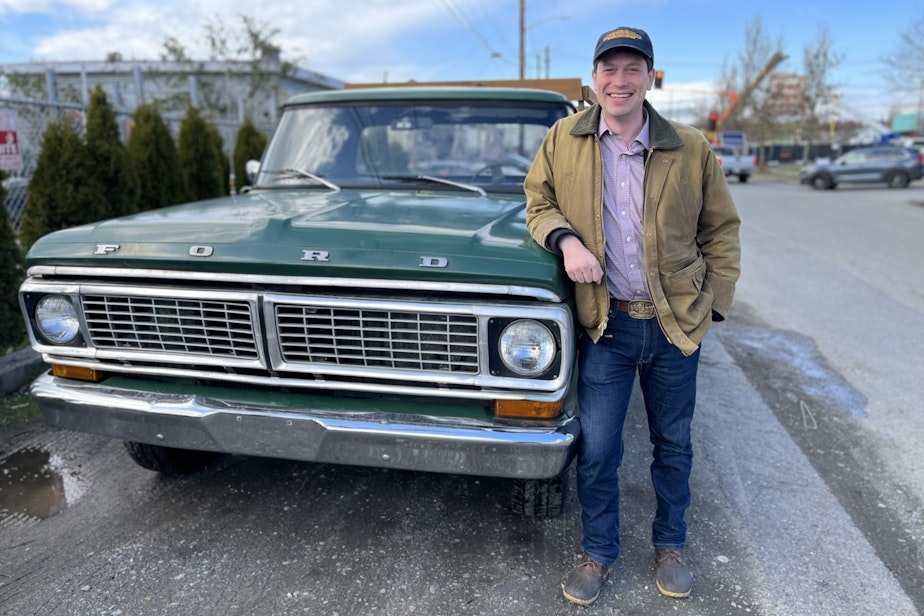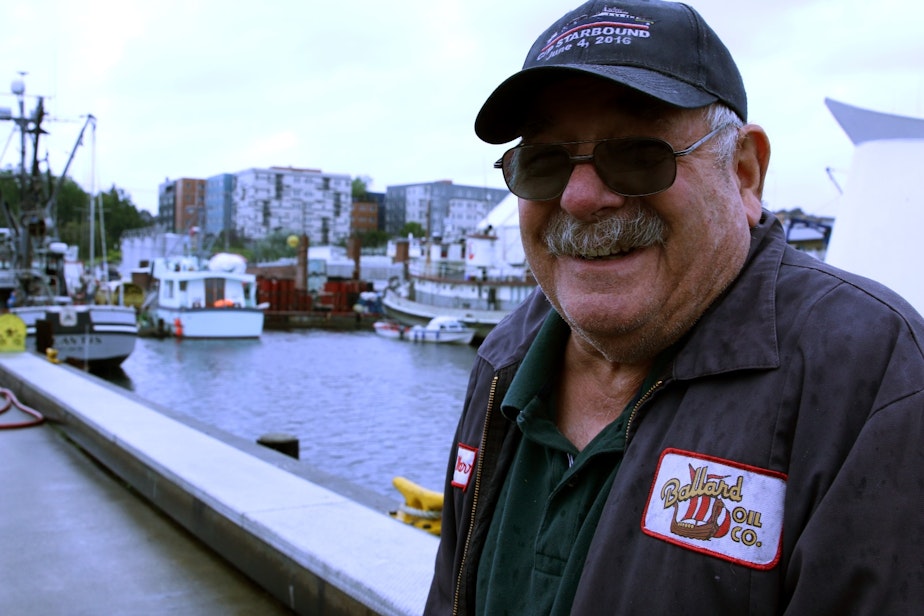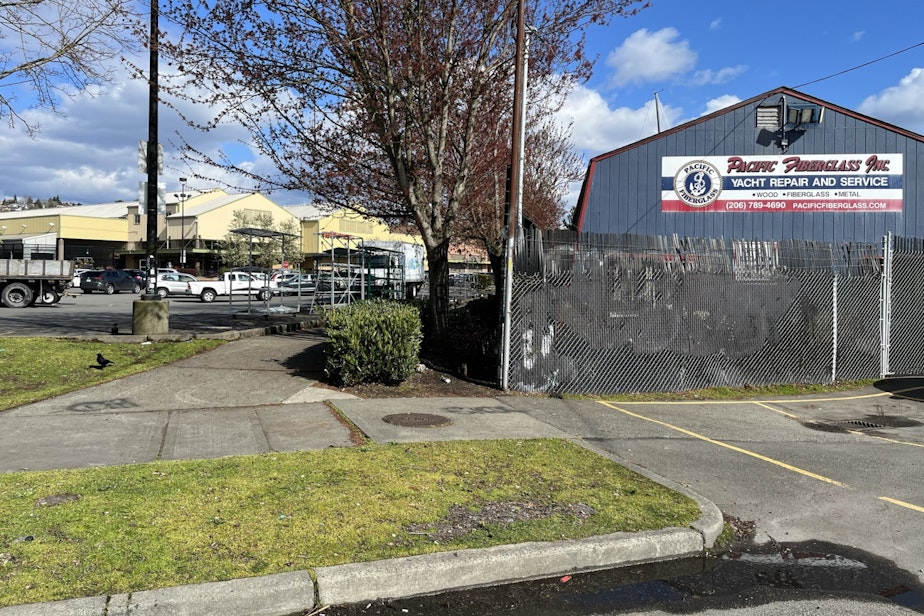Big-box businesses have taken over Seattle's industrial zones. New legislation could change that

Seattle’s population has grown, and the scarcity of land has led to more big-box stores and more self-storage facilities on industrial land.
Now, there’s an effort to preserve that industrial land for industry, whether it’s brewing beer or building ships.
Down near the ship canal, there’s a company called Craftsman plumbing.
Dusty Hoerler is the owner. He’s a big, strong guy with a soft spot for cats.
"Hey guy, " he says, coaxing a cat out of a corner of the shop. "C'mere."
He points to the wall of his warehouse, above the shelves of pipe fittings. "Eventually, we want to put cat boxes up there and there."
Hoerler is glad the Seattle City Council wants to preserve industrial land for businesses like his.
Sponsored
"If we were forced to move to South Everett or Lynnwood, our travel time would increase dramatically and we'd have no choice but to pass that on to our customers," he says.

The proposed zoning changes represent a compromise, hammered out by stakeholders over four years.
Some industrial areas will get stronger protections, with bans on big-box stores.
But the edges of industrial zones would become more flexible, allowing some offices and housing over ground floor industry.
Sponsored
Many industrial businesses support the idea. Eugene Wasserman represents business owners, including owners of manufacturing businesses in the area. He says those offices and housing could help make industrial uses more financially viable.
However, mixing these uses is not without its critics.

Warren Aakervik owns Ballard Oil, which is currently selling off the last of its assets and preparing to close. He's shifting his role to that of a manager of the industrial land where his business used to be.
He wants the land to remain in the hands of carpenters and shipbuilders. But he fears that neighbors living in new apartments near the property will complain.
Sponsored
"Industry is about transportation and noise, and you can’t get away from it," he says. "It's like an old-timer told me: They don't bend steel with a rubber mallet."
City Councilmember Dan Strauss tried to address concerns about noise in the draft of zoning changes he introduced this week to the Land Use Committee, which he chairs.
For example, in one of three new industrial zones being created, called "Urban Industrial," new housing would be affordably priced for industrial workers, and would require tenants to sign a waver agreeing that industry belongs here and will be noisy. Those apartments will come with triple-paned windows and soundproofing to ensure that industrial noises remain below 60 decibels.
Recently, Strauss drove around Ballard in his dad's old truck, pointing out all the retail stores encroaching on industrial land.
He pointed out the Fred Meyer, on land that used to be for maritime industrial uses. There’s still public access to the ship canal from the Fred Meyer parking lot, a vestigial reminder of that history.

Sponsored
Then there's the Ballard Blocks development (with Ross Dress for Less and a Trader Joe's) wrapping around the famous Edith Macefield "Up" House, and the high-end makeup store Sephora across the street.
"There were a lot of people who were very excited that there was a Sephora in Ballard," Strauss says. "The problem is that when somebody is expecting to go to a Sephora, they're expecting a certain type of environment that they're shopping within. So we don't want somebody to come down here to the industrial district and say, 'These roads have potholes' or 'Why is this cement truck driving in front of me when I buy my makeup.' This is why it's important to keep commercial businesses in commercial zones," he says, rather than in industrial zones.
Other details in the draft zoning reforms are designed to resolve land use conflicts in Georgetown, South Park, Interbay, and SODO.
"I will tell you that at this time, this is a tenuous compromise," Strauss says.
Sponsored
If and where to allow housing, in each industrial neighborhood, is a critical part of that compromise, he explains.
"If we are not taking this bill under serious consideration, it does have the chance to unravel."
The full city council expects to vote on the changes this June.




